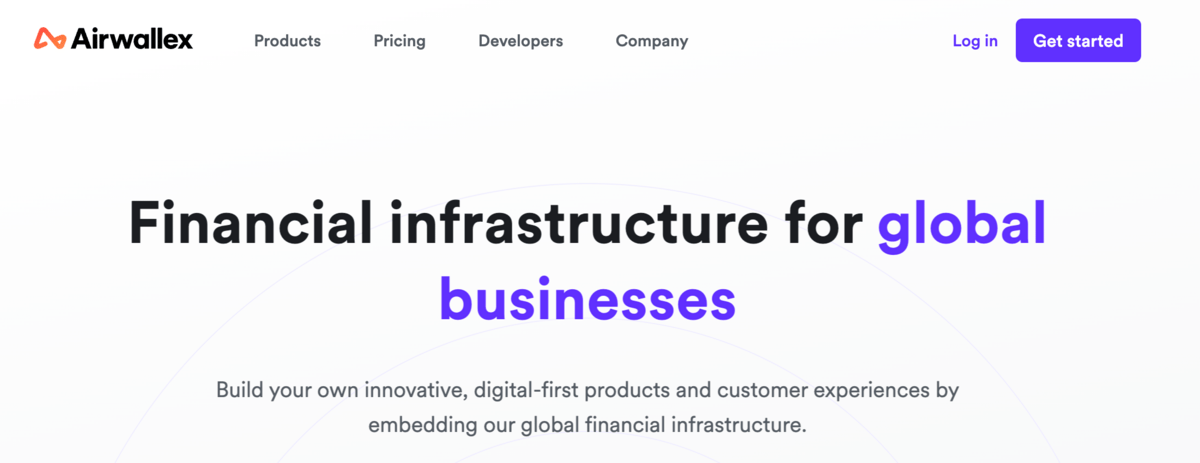- The Breakdown
- Posts
- Scaling a Fintech Company Internationally
Scaling a Fintech Company Internationally

Hello, and welcome to today's edition of Founders International, your daily newsletter where we cover the stories, trends, and companies in tech and startups from outside of the US.
Here's what we're covering today:1. How to expand a fintech globally2. An international company I've already been using3. The boom of India's SaaS industry
Read time: 3 minutes and 44 seconds
Thinking about how to expand a fintech internationally
There are many things that you may consider when expanding internationally, as that is a big step in the life of your company:
The size of the market
How much demand you think that market has
How much you think it will grow
How good the food is in that region
Wait.. I guess not that last one. Maybe it's just me.
When it comes to scaling a fintech company, there are numerous other things on top of that. Being that financial services is typically highly regulated, and different currencies get involved, there may be much more to take into consideration.
Luckily AirWallex, a UK based fintech company building the "financial infrastructure for global businesses" has done a lot of the leg work. Side note, I have no idea what that "financial infrastructure for global businesses" means, but that's why they're probably building that, and I'm here writing a newsletter on my couch with no lights on.

So, I'm here to breakdown the learnings from their interview about their expansion into 4 digestible key points, so you can take them and run if you are looking to run a global fintech company. Man, I must just be hungry.
Number 1: Do your homework
The first thing they talk about is how they anticipate fintech as a whole to become very uncertain due to market conditions. So, their first point is to make sure you take note of any relevant rules and regulations that pertains to your company. Think about which of them may change due to the changing markets, and how you can adjust if they do change.
They also recommend finding ways to measure your ROI on the expansion in each area, but don't really say how. Genius, never would have thought about that.
Number 2: Partnering could be the key
The second point they talked about, and they said is the most important, is to consider partnering with a company already established in the area you are going into. Why? Well, they likely already adhere to regulations, you can use their learnings and technology which makes for lower overhead, and then allows you access to customers easily.
And that is a key to startups, move fast, break things, and do it as cheaply as possible to validate your idea.
It also allows you to then just pick and choose the parts of your partner that you want, and start developing your own solution after that.
Number 3: Similar to the last one, but utilize software/technology
By utilizing software/technology as much as you can, you will be able to pivot if you run into things that don't work a lot easier and faster. If things are manual, and require a lot of people, turning the ship is going to be a lot harder, and probably more expensive.
Lastly, Number 4 (What I think is most important): People
Surround yourself and hire people already familiar and established in the market you are expanding too. These people will know the in's and outs better than you, and can avoid pitfalls of doing business that would likely cause you to crash and burn. Doing business in the US is different than doing business in China, which is different than France, which is different than Nigeria.
Hire a team of great people, and let them run. It will likely pay dividends in the long run.
A-Company-a-Day
So, I must admit, I am often a part of the clean plate club when it comes to food. For those that don't know what that is, it is a made up club my grandparents used to tell me about, and you could become a member if you ate every piece of food off of your plate and dang near licked it too. Me being the competitor I am, I had to be in.
There is one place in my life where this doesn't apply, reading. I have tried so many times to start books in my life, but by the 10th page, most times I'm looking like Homer Simpson in church.

But, even though I wasn't reading the books, I still wanted to get the general ideas out of them. Just, you know, the lazy way. So I started using this company, Blinkist. They are basically the adult version of Sparknotes, and they give you the main points to non-fiction and business books in 15 minutes or less.

It was a match made in heaven.
They even will recommend books based on what you have read in the past, which has lead me to some of my favorite reads. And, they are rolling out a new product which does the same for podcasts.
The reason I wanted to highlight this company, is I know many people that use it too, and it happens to be a company from Germany! An international startup that has made waves in the US market, and garnered 25 million downloads across all platforms.
Little do we know some of the companies we use everyday are actually internationally based, and we wouldn't even know because they don't get the press they deserve.
Now, if only this would've existed for my studies in the classroom...

The boom of the Indian SaaS industry
A new report was recently released by Bain and Company which was a study of the booming Indian SaaS industry.
You know how we do, we got it there and got the golden nuggets for you so you don't have to read the whole thing.
First off, SaaS means "software as a service", so any company where they provide you a software that you pay monthly/yearly for, is considered SaaS.
The main takeaway, is this industry is already HUGE, and growing at a rapid rate. The Indian SaaS market is second only to the US in terms of scale and maturity. There are currently 14 SaaS companies doing north of $100m ARR (annual recurring revenue), compared to just five in 2020.
This is likely due to the fact that there was 1,600 Saas companies funded in the last 5 years. 1,600!
The biggest company in Indian SaaS is Securonix, which raised $1b this year and does security analytics.
Where is this market heading, you may ask? Well, the prediction of the study is that the SaaS industry in India will be at $35 billion in ARR by 2027. Yes, that is billion with a B. That would mean this space is going to grow at 20-25% per year for the next 5 years, which is just absolute insane growth for an already mature market.
If anyone has any shares in these companies that they are looking to get rid of...

With these companies now likely expanding to the US too, there's no telling how high the limit is for these companies. Being that in India they've already hit this scale without hitting the most mature market, Indian Saas is an industry to keep an eye on.
And that's all for today, if you want to get more follow us @Founders_Intl, or respond to this email. Yes, we respond to all emails, including yours. Try us.
Have an interesting news story, person, company or other sweet topic you want us to cover? Respond to this email with a link, short description, any any other relevant information, and your submission may be featured in a future issue.
What did you think of today's issue?
Respond with one of these emojis and let us know what you thought!
💯 Freaking sick dude🤷♂️ Meh, do better next time😑 Bruh, I might unsubscribe after reading that